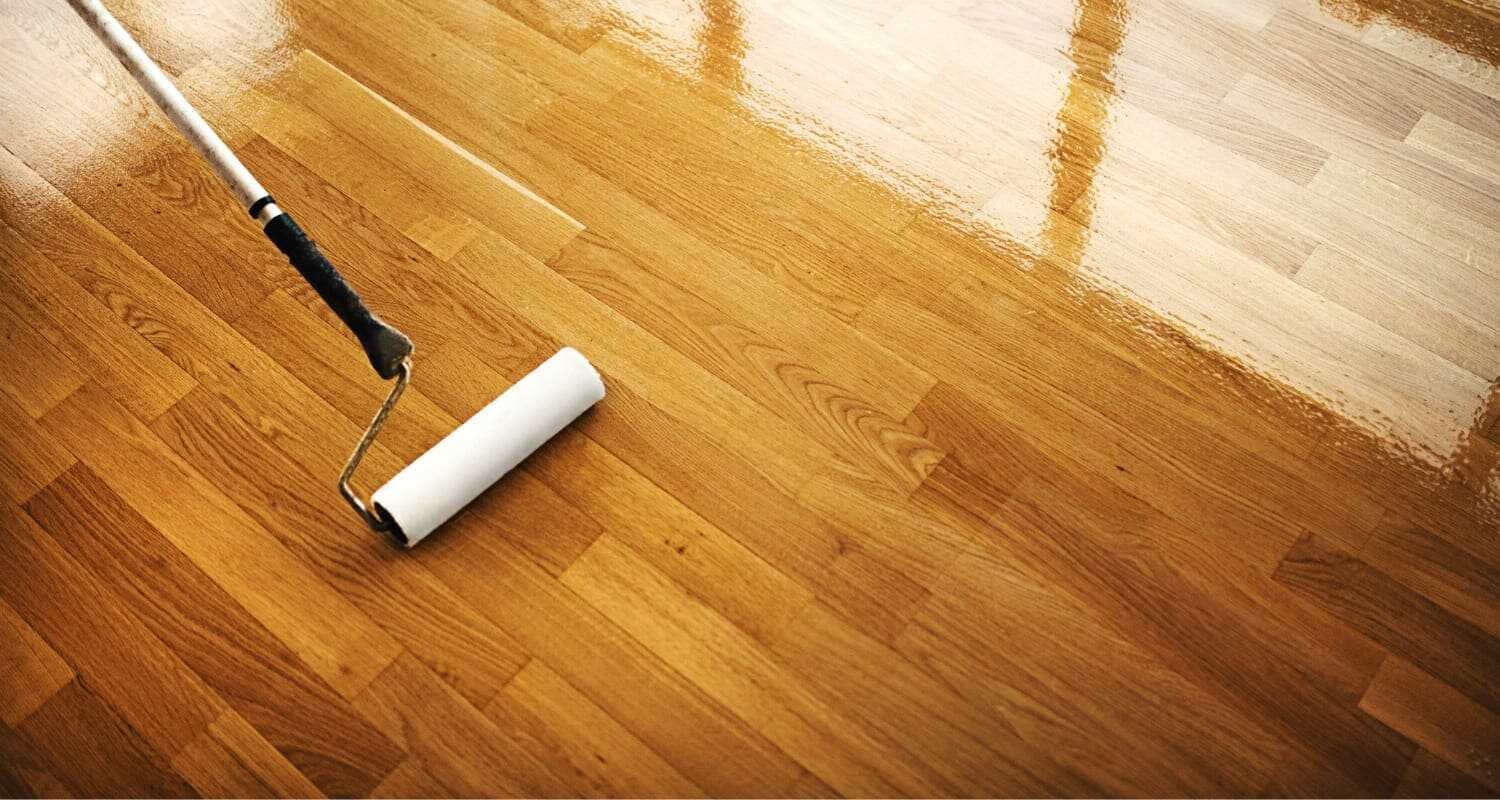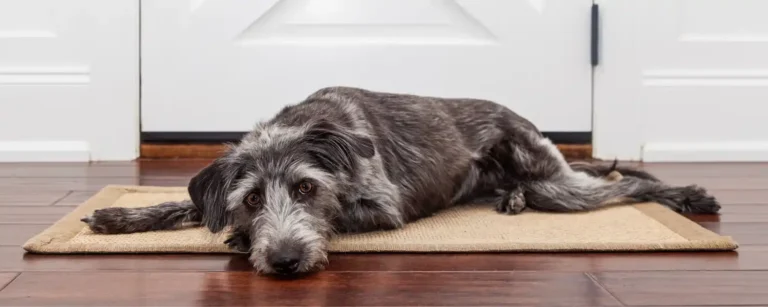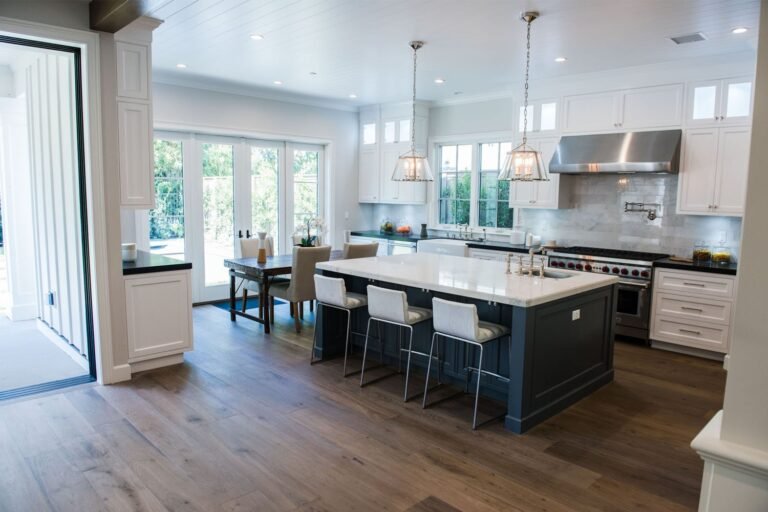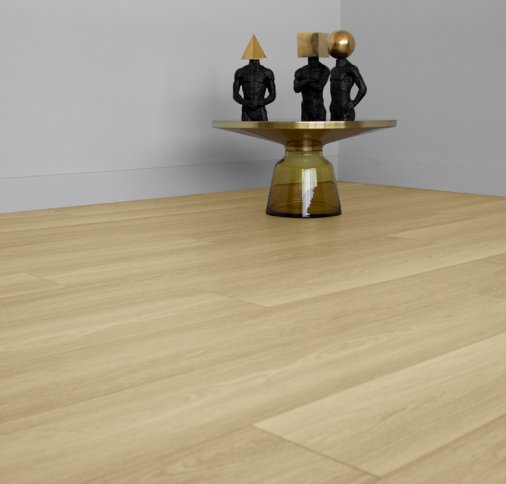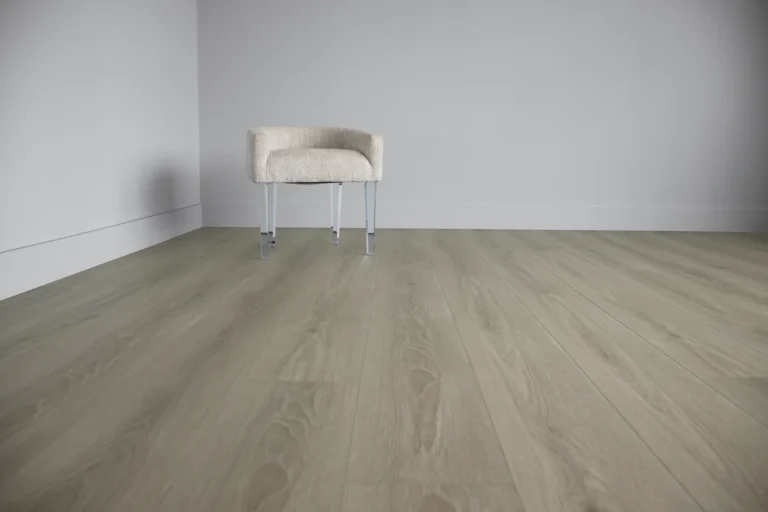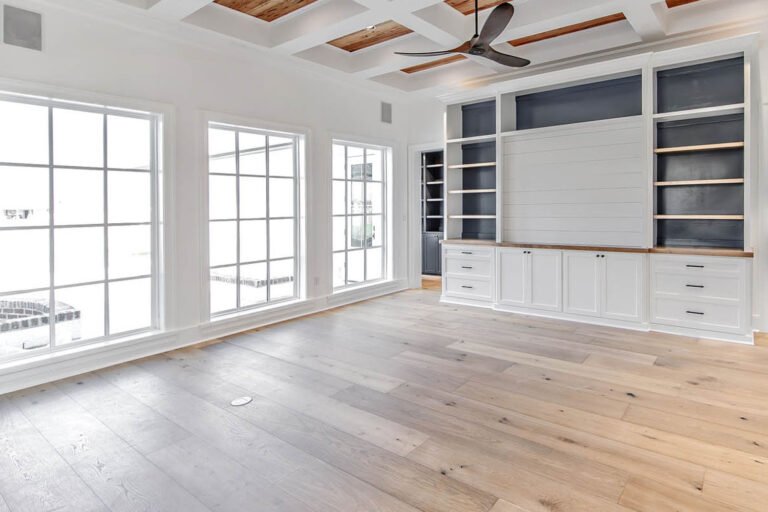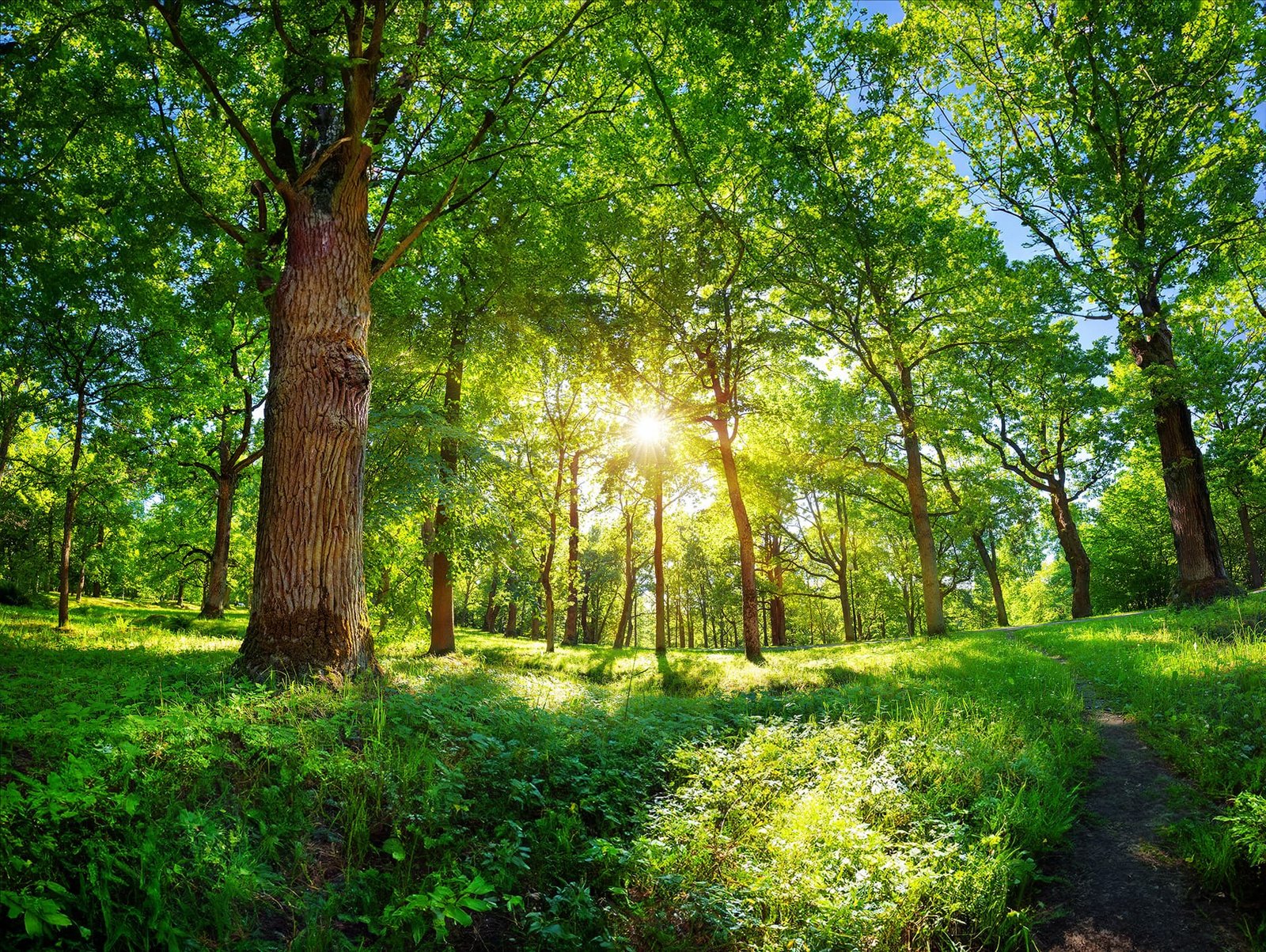How to Clean Engineered Hardwood Floors
Engineered hardwood floors provide many homes with a durable and aesthetically pleasing flooring option. However, to maintain their beauty and longevity, regular cleaning is essential. This guide will explore how to clean engineered hardwood floors and ensure they remain in perfect condition for years.
What is Engineered Hardwood Floors?
Engineered hardwood floors consist of multiple layers of wood. They utilize a top layer of real hardwood veneer that bonds to several layers of plywood or high-density fiberboard (HDF). This multi-layered construction enhances the stability and durability of engineered hardwood, reducing its vulnerability to expansion and contraction caused by fluctuations in humidity and temperature compared to solid hardwood.
Discover more about engineered hardwood flooring in a comprehensive post, “What is Engineered Hardwood Flooring?“
Why Cleaning Engineered Hardwood is Important?
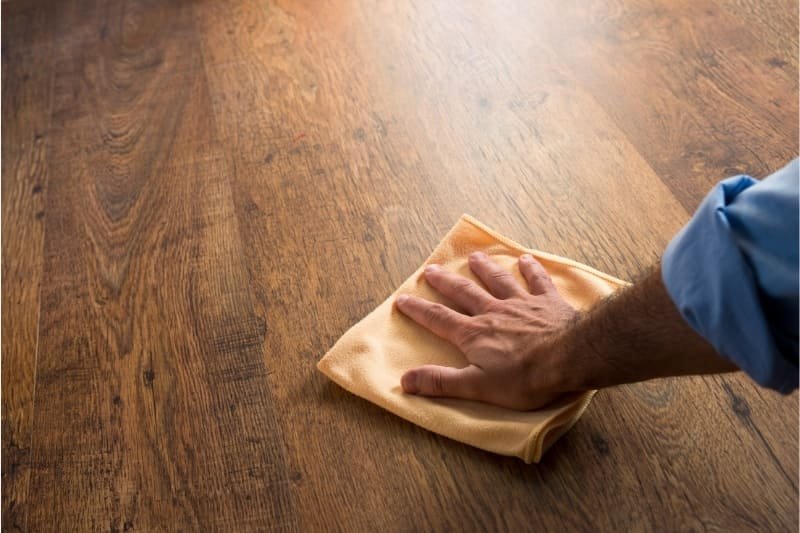
Regularly cleaning engineered hardwood floors is crucial for maintaining their appearance and durability. Homeowners should periodically remove dirt, dust, and debris to prevent the buildup of grime that can dull the surface and diminish the natural beauty of the flooring. Additionally, proper cleaning prevents scratches, stains, and wear, thus extending the lifespan of the engineered hardwood. Homeowners can enjoy their floors for years without costly repairs or refinishing by investing time and effort into regular cleaning.
Furthermore, cleaning engineered hardwood floors contributes to a healthier indoor environment. Homeowners should remove allergens, bacteria, and other contaminants from the flooring’s surface to promote better indoor air quality, particularly for individuals with allergies or respiratory issues. By maintaining clean floors, homeowners can create a more comfortable and hygienic living space for themselves and their families while preserving the value of their homes for potential resale.
What are the Tools and Material Needed for Cleaning?
Engineered hardwood floors add elegance and warmth to any space, but preserving their beauty requires proper cleaning. Using the appropriate tools and materials is essential for achieving optimal cleaning results. Below is a list of necessary items for cleaning engineered hardwood floors:
- Soft-bristled broom or vacuum cleaner
- Microfiber mop
- pH-neutral hardwood floor cleaner
- Bucket
- Microfiber cloth or sponge
- Soft towels
- Protective gloves
- Floor polish or protective coating
How to Clean?
Maintaining the cleanliness of your engineered hardwood flooring is essential for preserving its beauty and longevity. Proper cleaning actively removes dirt and debris, protecting the wood from damage. This section will explore effective techniques to keep your engineered hardwood floors looking new. These steps, from daily sweeping to periodic refurbishment, will help you maintain a clean and attractive floor for years.
Sweep Daily with Broom
Begin your daily cleaning routine by sweeping your engineered hardwood floor with a broom. This action removes loose dirt, dust, and debris, prevents scratches, and maintains a clean surface.
Vacuum the Floor Gently
Use a vacuum cleaner with a soft brush attachment to gently remove finer particles and dust from the floor. Avoid vacuum cleaners with hard bristle attachments, as they can scratch the surface of the hardwood.
Use Proper Cleaning Products
Choose cleaning products designed specifically for engineered hardwood floors to prevent damage to the wood. Avoid harsh chemicals, ammonia-based cleaners, or excessive amounts of water.
Mop your Engineered Hardwood with a Dry Microfiber Mop
Dampen a microfiber mop with water and use it to clean the flooring. Do not saturate the mop or the floor with excess water. Mop the floor toward the wood grain and immediately dry any excess moisture with a clean microfiber cloth.
Polish and Oil
Periodically polish your engineered hardwood floor to restore its natural shine. Use a high-quality hardwood floor polish specifically formulated for engineered wood. Follow the manufacturer’s instructions for applying the polish, ensuring even coverage, and buffing the floor to achieve a glossy finish.
Refurbish Every 5 Year
Refurbish your engineered hardwood floor every five years or as necessary, depending on its level of wear and tear. This process involves sanding the surface to remove scratches and imperfections and then applying a new coat of finish to protect the wood and enhance its appearance.
How to Make Natural Cleaner for Engineered Hardwood
Homemade cleaners provide excellent alternatives to store-bought chemicals and cause less harm or irritation. Moreover, they are environmentally friendly, easy to make, and clean as effectively as store-bought options.
To make natural cleaner, gather the following ingredients:
- 1 cup distilled water
- 1 cup white vinegar
- 1 tablespoon mild dish soap
- Optional: 10-15 drops of essential oil for fragrance
Instructions:
- Mix Ingredients: Combine 1 cup of distilled water with 1 cup of white vinegar in a clean spray bottle.
- Add Dish Soap: Add 1 tablespoon of mild dish soap to the mixture, ensuring it is gentle and pH-neutral to prevent damage to the hardwood.
- Optional Fragrance: Add 10-15 drops of your preferred essential oil to the mixture for a pleasant fragrance. Essential oils such as lemon or lavender provide a refreshing scent and possess natural antibacterial properties.
- Shake Well: Tightly secure the spray bottle’s lid and shake the mixture well to blend all the ingredients thoroughly.
- Application: Lightly spray the homemade cleaner onto the engineered hardwood floor.
Common Mistakes to Avoid When Cleaning
Maintaining the cleanliness of your engineered hardwood floors is crucial. However, it’s equally important to avoid common mistakes that can damage the wood. Here is a list of mistakes to avoid when cleaning:
Avoid Excessive Moisture
One of the most common mistakes to avoid is using excessive moisture when cleaning engineered hardwood floors. Water and moisture can cause damage to the wood, leading to warping, swelling, or irreparable damage. Always use a damp mop or cloth instead of saturating the floor with water, and immediately dry any excess moisture with a clean towel.
Never use an Abrasive Cleaning Brush
Using an abrasive cleaning brush can scratch and damage the surface of engineered hardwood floors. It is important to avoid using stiff-bristled brushes or abrasive scrubbing pads as they can leave unsightly marks and compromise the integrity of the wood. Instead, opt for soft-bristled brushes or microfiber mops to gently remove dirt and debris without causing any damage.
Steam Mop Usage
Although steam mops may seem convenient for cleaning, they actually pose a risk to engineered hardwood floors. The high heat and moisture from steam can penetrate the wood’s surface, leading to warping or swelling. Moreover, steam can strip away the hardwood’s protective finish.
Harsh Chemical
Using harsh chemical cleaners on engineered hardwood floors can cause discoloration or damage the wood. Avoid abrasive cleaners, bleach, or ammonia-based products because they can be too harsh for the wood’s delicate surface.
Rough Applicators
Rough or abrasive applicators, such as steel wool or rough sponges, can scratch and damage the surface of engineered hardwood floors. Instead, use soft, non-abrasive applicators like microfiber cloths or mops to gently clean the floors without causing harm.
How to Extend Lifespan of Engineered Hardwood
Proper maintenance is essential to maximize the lifespan of engineered hardwood. Here are some tips to help extend the longevity of your engineered hardwood flooring:
Use Rugs to Protect Floors
Placing rugs or mats in high-traffic areas and entryways can help protect engineered hardwood floors from scratches, dents, and wear caused by foot traffic. Ensure that rugs have non-slip backing to prevent slipping and sliding.
Use Curtains to Prevent Fading
Exposure to direct sunlight can cause engineered hardwood floors to fade and lose their shine over time. Block harmful UV rays and protect from sun damage using curtains, blinds, or shades.
Protect Flooring from Humidity
Engineered hardwood floors are sensitive to changes in humidity levels, which can cause the wood to expand or contract, leading to warping, cupping, or cracking. During dry seasons, use a humidifier to maintain optimal indoor humidity levels and minimize fluctuation that can damage the wood.
Wipe Spills Immediately
Spills and liquids can quickly penetrate the cracks of engineered hardwood floors, resulting in water damage and staining. Prevent moisture damage by promptly wiping spills and accidents with a dry cloth.
Learn how to make Engineered Hardwood Flooring last longer in our detailed article, “How Long Does Engineered Hardwood Last?”
Conclusion: Keeping Your Engineered Hardwood Floors Clean
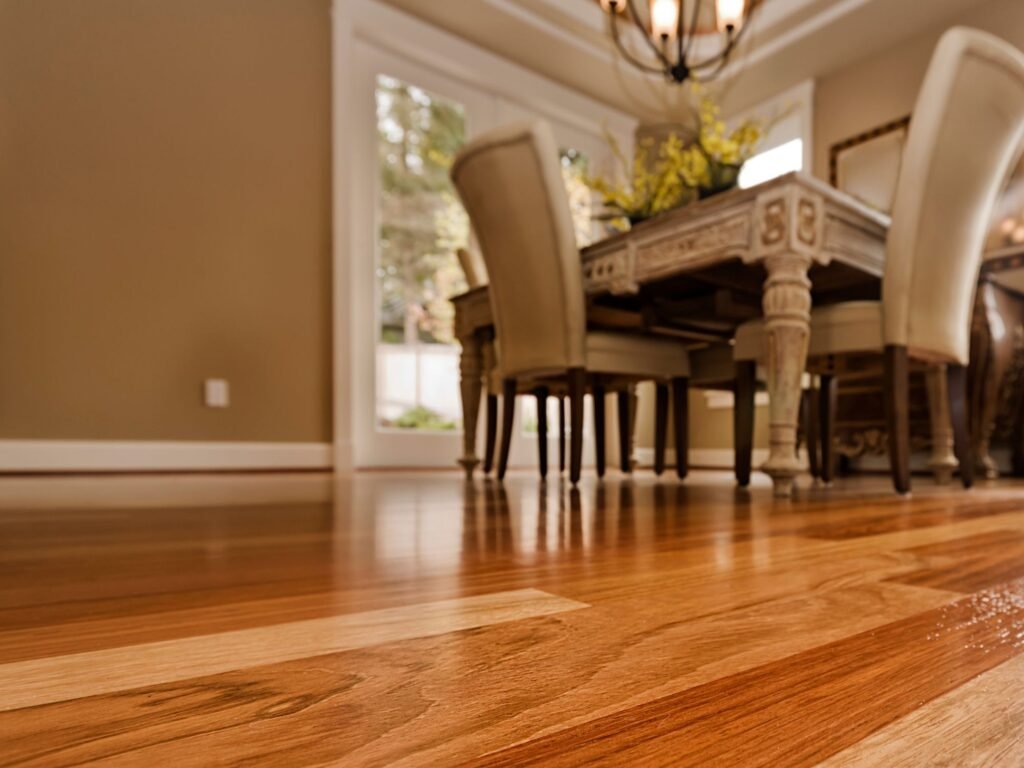
Maintaining the cleanliness of engineered hardwood floors is essential for preserving their beauty and durability. By following the cleaning tips outlined in this guide, homeowners can ensure they keep their floors in optimal condition for years. These tips include sweeping the floors daily, vacuuming them gently, and using appropriate cleaning products. Avoiding common cleaning mistakes such as excessive moisture and harsh chemicals is important because they can damage the flooring and shorten its lifespan.
Villagio Wood Floors, a wholesaler based in California, offers a range of engineered hardwood flooring and cleaning products tailored to the retailers’ needs. We design our products to meet the highest quality and performance standards, ensuring that engineered hardwood floors maintain their spotless appearance and longevity. With our expertise in engineered hardwood flooring and commitment to customer satisfaction, Villagio Wood Floors is your trusted partner for all your flooring needs
How to clean engineered hardwood floors FAQs
What is the Lifespan of Engineered Hardwood?
The lifespan of engineered hardwood flooring can vary depending on factors such as the quality of the materials, installation, maintenance, and environmental conditions. However, with proper care and maintenance, engineered hardwood floors can last 20 to 30 years or even more.
Will Water Ruin Engineered Hardwood?
Although engineered hardwood is more resistant to water damage than solid hardwood, excessive water exposure can still cause damage. Water can penetrate the wood, leading to swelling, warping, and mold growth. It’s important to promptly wipe up spills and avoid using excessive water when cleaning engineered hardwood floors.
Why do my Engineered Hardwood Floors look Cloudy?
Several factors, including residue from cleaning products, wax buildup, or improper cleaning techniques, can cause cloudiness or a hazy appearance on engineered hardwood floors. To address this issue, use a pH-neutral cleaner and avoid excessive water. Buff the floor with a dry microfiber cloth to remove residue and restore its natural shine.
Do Engineered Hardwood Floors Scratch Easily?
Although engineered hardwood floors are more scratch-resistant than solid hardwood, they are vulnerable to scratches by sharp objects or heavy furniture. Do the following to minimize scratching:
- Use felt pads or coasters under furniture legs.
- Avoid dragging heavy items across the floor.
- Regularly sweep the floor to remove debris.

